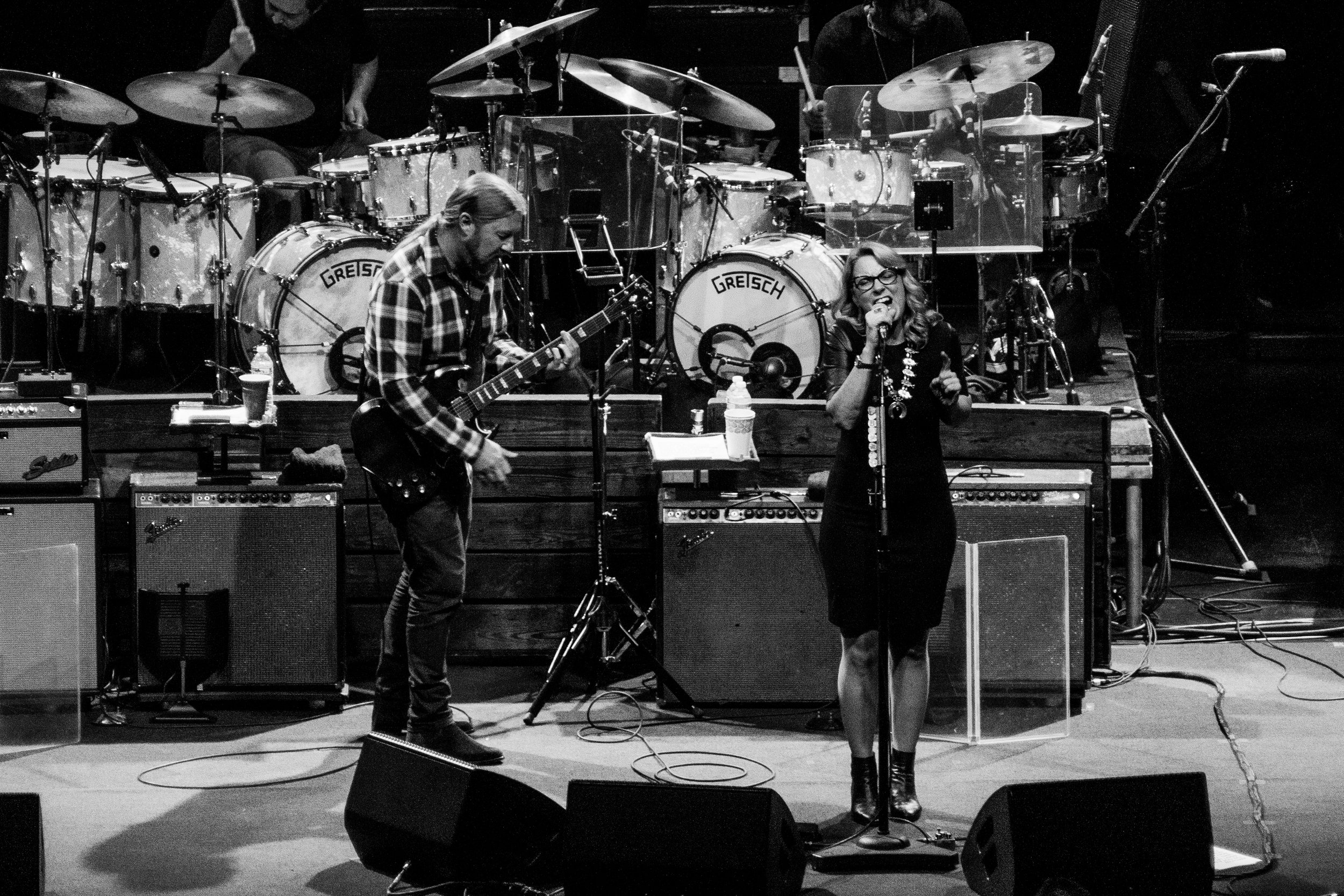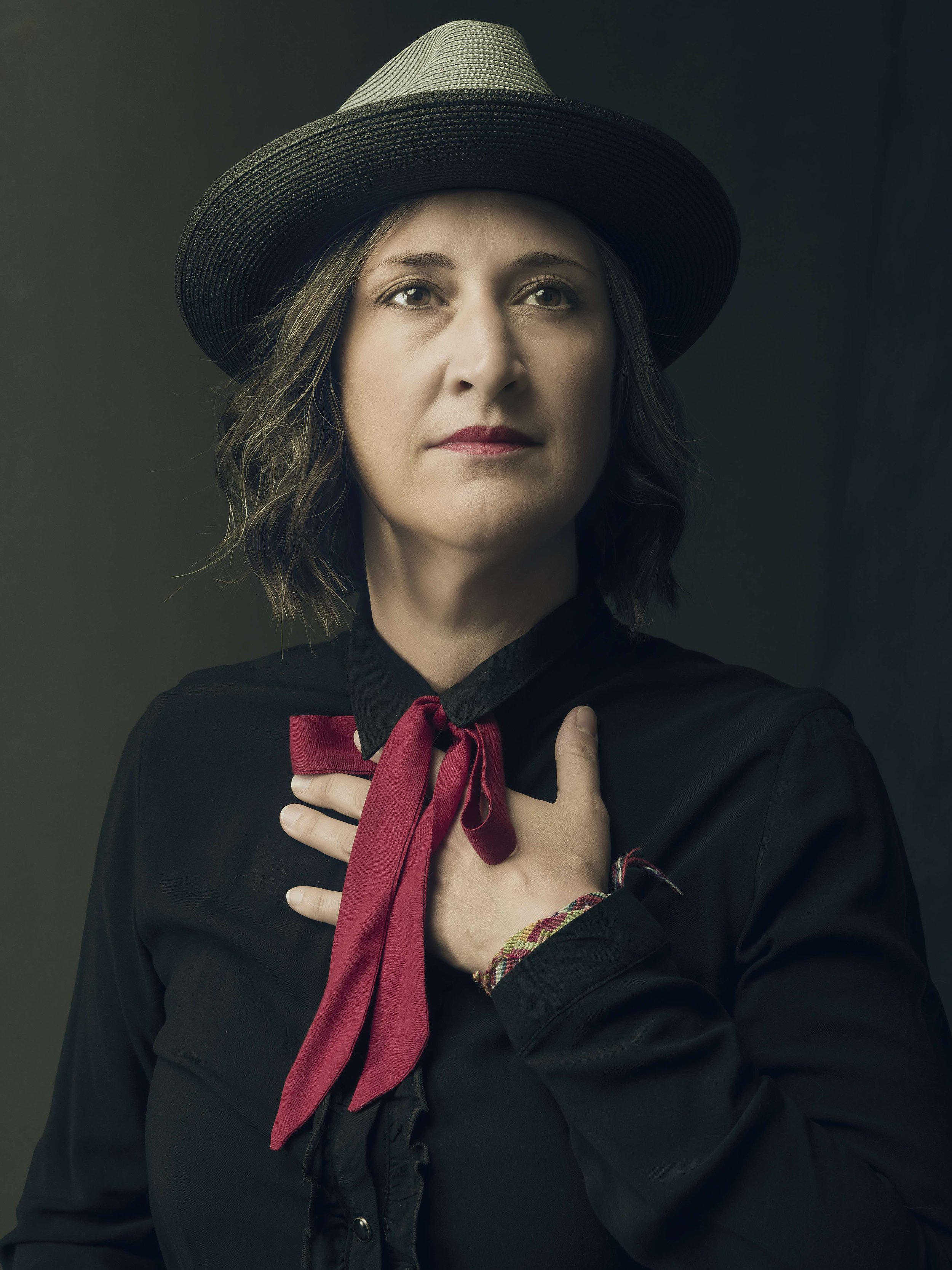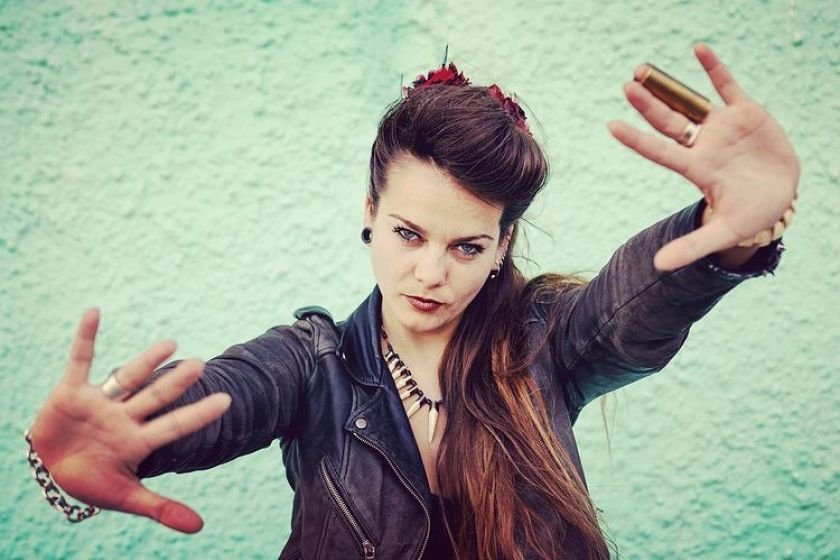Tash Sultana is at Home in her Flow State

We can talk about how she plays 20 instruments, admire how she writes and produces all her music, or wonder how she finished a Billboard-charting album in a month. If we did, we would be jumping over something much deeper that lives in her music: her flow state.
Her intuitive, meditative approach is her signature in music and life.
[Last spring, I taught a class in Writing for the Music Industry at Loyola University, and Maggie Gaus wrote well about Tash Sultana’s “Blackbird” as part of that class. When I saw that Sultana was playing New Orleans, I asked Gaus if she could interview Sultana for My Spilt Milk. Here is her piece.—Alex]
We can talk about how she plays 20 instruments, admire how she writes and produces all her music, or wonder how she finished a Billboard-charting album in a month. If we did, we would be jumping over something much deeper that lives in her music: her flow state.
Tash Sultana, 23, has been playing guitar since she was three years old, and started out busking on the streets of Melbourne, Australia. You can still find YouTube videos of this one-woman band captivating crowds of strangers in seconds with just her guitar and loop machine. Those crowds have transformed into a global fan base landing her on festival stages all around Europe and on her second world tour. She will play The Orpheum on Friday.
Sultana doesn’t follow the traditional verse-chorus structure when writing her music. Her songs come out of her “flow state,” a term introduced to her by her naturopath, which later became the title of her most recent album, Flow State. This creative condition has allowed her to write nine-minute songs with just a guitar, a multi-genre album, and be awarded two platinum and gold singles on the Australian music charts. It has helped her become a guitar hero for many and made it possible for her to write an entire second album even though she’s on road and halfway through a world tour.
On the more personal side, it helps her stay in the moment and not distract herself. In this email interview, Sultana's clearly real, but she doesn't risk overanalyzing things. She gets to the point and moves on. Her "flow state" has helped her become the artist she is, so she doesn't ask hard questions of it.
You seem like a very curious person. How many years of playing guitar did it take you to become curious about another instrument?
I’d definitely say that I am a curious person with a knack for learning. I reckon I played guitar for about 10 years before I picked up another instrument.
You mentioned recently that writing your entire upcoming album on the road was a first for you. How was that for you?
I just write when it comes to me, but the difference now is that I always have a guitar with me wherever I go so if something comes to me I’ll be able to lay it down then and there.
You've said that music is therapeutic for you. Can you tell me about an occasion when you felt different or better after playing something?
Every good gig that I have, I walk off the stage feeling better than when I walked on. Music is just what I do.
You have mentioned that you were a completely different person when writing Notion. Now that you have written another album’s worth of material, how are you different from the person you were when you wrote Flow State?
Flow State made me realize that I really needed to go back to school on a couple things musically, and I gave myself too many barriers and restrictions in terms of writing and performing. Album 2, I’m going to lift those restrictions and take it as far as a can.
Your "flow state" causes you to completely shut off everything but the music you are getting lost in. It seems almost meditative. Are you aware of the longest session you ever had in this state? Are there different states you enter for certain songs?
I feel like I’m reaching the best flow state that I’ve ever been able to because I’m feeling more comfortable as a performer and am enjoying my shows now more than ever before. To be honest, I’m generally happy with my life right now.
We are in a time where getting people’s attention is hard, and keeping it is even harder. Your music is not rushed and is longer than the norm. What is it about your music that allows you to achieve something so difficult in today’s society?
Mate, if you figure that out let me know. I’m very grateful that people enjoy listening and watching me do what I enjoy most. Songs take longer because they’re all made up on the spot. There is no track, it’s all live.
In one of your performances, you said to the crowd, “This song works best in the silence” before “Harvest Love.” It is refreshingly unusual to ask a live audience to be silent at a concert. Why does this specific song need silence? What does the silence do for you in this performance?
I just enjoy playing it to a quiet and attentive crowd, so I ask the audience to enjoy in this state with me.
What is your song, “Blackbird” about? Where were you when you wrote it, and what was your headspace in those moments of creating the song?
I was 16 when I wrote it in New Zealand, traveling. Sixteen was a long time ago, so I can’t remember exactly but I still enjoy playing it every night. It’s probably my favourite song to play right now.






